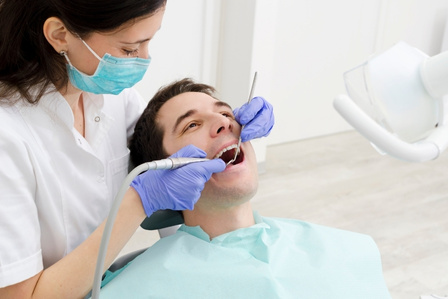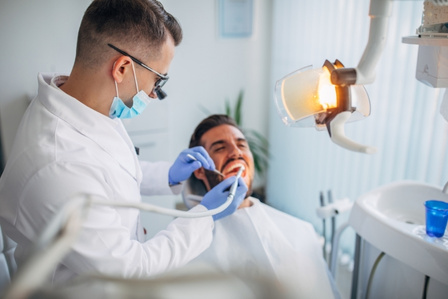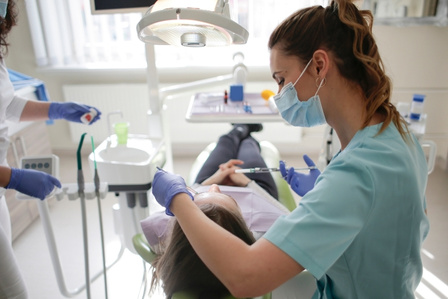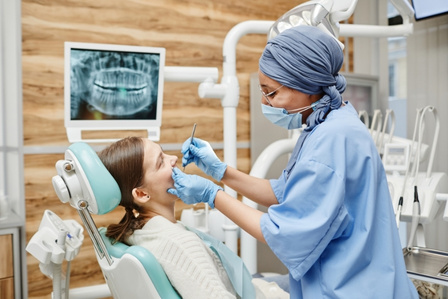
Flossing and brushing are crucial in maintaining healthy teeth, but will it be sufficient to avoid cavities? A lot of individuals think that what they do regularly is enough. But cavities still form. This brings forth a significant query- can professional teeth cleanings truly prevent cavities?
Cavities develop when plaque and tartar build-up, providing a place for destructive bacteria to grow. Though proper in-home oral hygiene is important, professional cleanings take it one step further. They eliminate tough buildup, strengthen enamel, and enable early detection of possible problems.
Let’s discuss how frequent dental cleanings help to prevent cavities and how often you should have them.
How Cavities Form?
Cavities don’t happen overnight. They form over time as a result of plaque, bacteria, and acids that soften tooth enamel. This is how it happens:
- Plaque buildup – Bacteria feed on sugars after eating and create acids, which develop into a sticky film known as plaque.
- Tartar formation – If plaque is not removed, it becomes tartar, which cannot be removed with a toothbrush.
- Erosion of enamel – The acids in plaque and tartar wear away enamel, causing erosive areas that ultimately become cavities.
Even with regular brushing and flossing, there are parts of the mouth that are hard to clean. Plaque and tartar can build up in these places. That is where professional dental cleanings in Newton, KS, come in.
What is The Role of Professional Teeth Cleaning?
Dental cleanings eliminate plaque and tartar that regular brushing can’t remove. A dentist does the following during a cleaning:
- Scales your teeth – Removing hardened tartar from the surface and gumline.
- Polishes your teeth – Smoothing enamel to prevent plaque from adhering.
- Applies fluoride treatment – Strengthening enamel and shielding against decay.
- Checks for initial signs of cavities – Finding possible issues before they become severe.
Only professional teeth cleaning can remove tartar, so it cannot be done at home. This reduces the chances of getting cavities and other oral issues.
How Cleanings Help Prevent Cavities?
Regular dental cleanings do more than simply clean your teeth – they actively prevent cavities. Here’s how:
- Removing plaque and tartar – Disposes of the bacteria-laden debris that causes decay.
- Fluoride application – Assists in remineralizing and reinforcing enamel, making the teeth more cavity-resistant.
- Finding trouble spots – If some areas are always prone to trapping plaque, a dentist may suggest improved oral care methods.
- Early intervention – Catching small cavities before they need extensive treatment, such as fillings or root canals.
Regular cleanings maintain your mouth in a healthier condition and ensure you enjoy a cavity-free smile.
How Often Should You Get Cleanings for Cavity Prevention?
The usual recommendation is to undergo a professional cleaning every six months. Some patients, though, will need to come in more often, depending on their oral needs.
You may need cleanings every three or four months if you:
- Develop cavities with great frequency.
- Suffer from gum disease or gingivitis.
- Suffer from dry mouth (which exacerbates plaque).
- Wear braces or other dental appliances that complicate cleaning.
Your dentist will evaluate your oral health and recommend a cleaning regimen that best works for cavities. By following their advice, you can protect your teeth year-round.
Even with regular brushing and flossing, professional cleanings provide added cavity protection. Getting cleanings regularly, as your dentist recommends, helps your teeth remain cavity-free and strong. Don’t wait for problems to develop—stay ahead with regular dental appointments!
Are you due with your dental cleaning? Contact our clinic and book an appointment with our trusted dentist.



